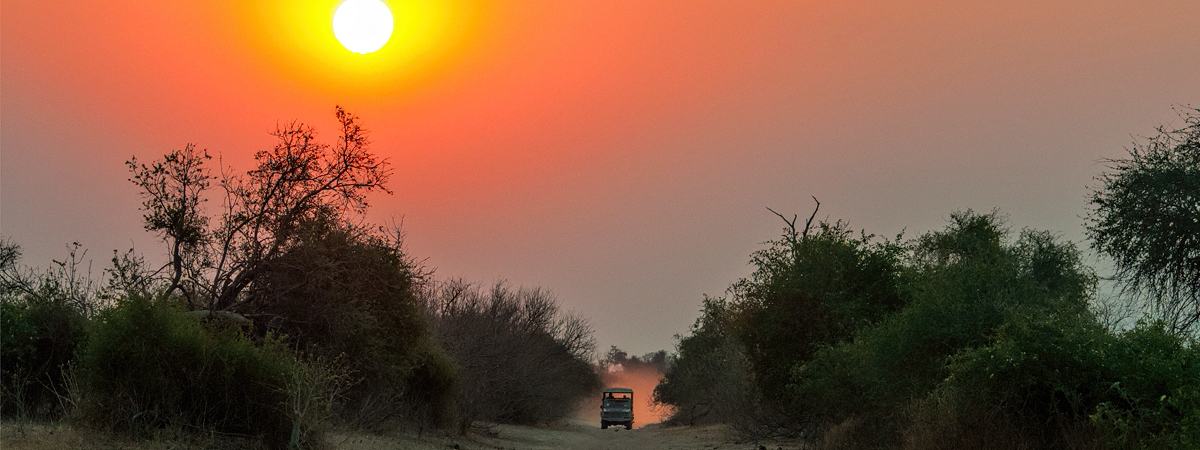Ngamo – a template for resolving human-wildlife conflict in Hwange NP
You only have to spend a few minutes in his company to see that Mark Butcher, better known as ‘Butch’, is a man on a mission.
That mission, in broad terms, is to ensure the survival of Zimbabwe’s Hwange National Park and its wildlife.
Butch knows he cannot do it alone; to have any chance of success he needs to get the local communities that border the park to buy in to the idea that their own future and the park’s future are inextricably intertwined.
The reason is simple: if the people living on the park’s periphery are supportive and willing to work with the park, they can provide a valuable and vital barrier between the park and the surrounding countryside.
If, as is too often the case, they see the park and its wildlife as the enemy, they can provide a very easy route in and out of the park for poachers. The reality of this was demonstrated only too vividly by the recent poaching of Cecil, one of Hwange’s best known lions who was enticed out of the park into an adjacent unprotected area and then killed.
There is no overnight success, Butch knows that the road ahead is a long one but the groundwork has been laid.
Butch’s company, Imvelo Safari Lodges, currently has 3 lodges in Hwange NP and 2 of them ( Bomani Tented Lodge and Camelthorn Lodge) are built on community land close the park’s eastern Ngamo gate. To get the consent from the community leadership meant overcoming the villagers’ natural antipathy to the wildlife that regularly took their livestock and the park authorities that protected it.
Indeed whilst we were in Ngamo village Johnson, the headman, told us that two of his donkeys had been killed by lions just days earlier. A significant measure of the progress that Butch has achieved was hearing from the headman that despite lamenting the loss of his donkeys to lions no-one from the village was sent out to track down and kill the lions responsible as would have been the case in days gone by.
Johnson understands that the benefits that tourism can bring his community far outweigh the occasional loss of livestock and as we sat and chatted to Johnson the high regard in which he holds Butch was very evident.
The land around Ngamo village is not great farmland and, like the park itself, has no permanent water. In a country where unemployment is very high, the lodges provide both employment and training. Employment means a far more reliable source of money to buy food and other essentials, than could be gained from farming.
There is no doubt in Johnson’s mind that tourism represents the way forward for his community. One of his own sons, Vusa, is now working as a trainee guide with Imvelo and is a terrific role model for other youngsters in the village.
Improving the quality of life
Imvelo’s commitment to Ngamo is about much more than simply providing employment.
Pumps have been installed to provide a clean water supply; vital for the health of any community.
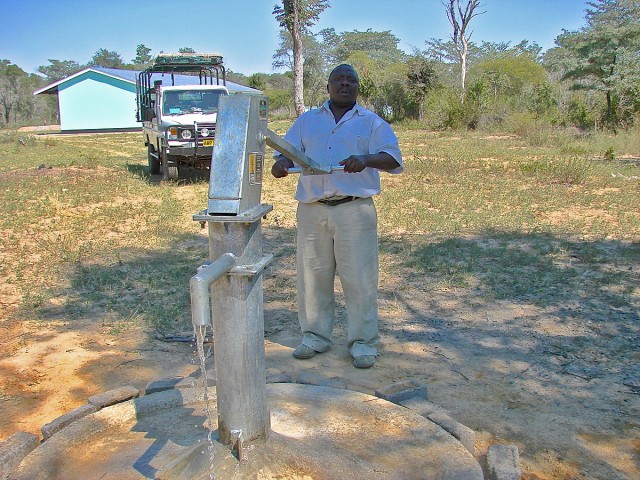
Imvelo’s annual ‘Mobile Dentist Safari’ welcomes a team of dentists from Europe who give their time to provide dental care for the communities; performing in excess of 1500 procedures in the space of a week; many of them on people who have never seen a dentist before in their lives.

Education, Education, Education
But the cornerstone of Imvelo’s community work is providing education for the village’s children. Education that will set them on the path for a better future.
Using their own money, augmented by philanthropic donations, they have overseen the construction of primary schools in Ngamo and other communities.
Decrepit buildings have been replaced by custom built classrooms and purpose built accommodation for teachers.
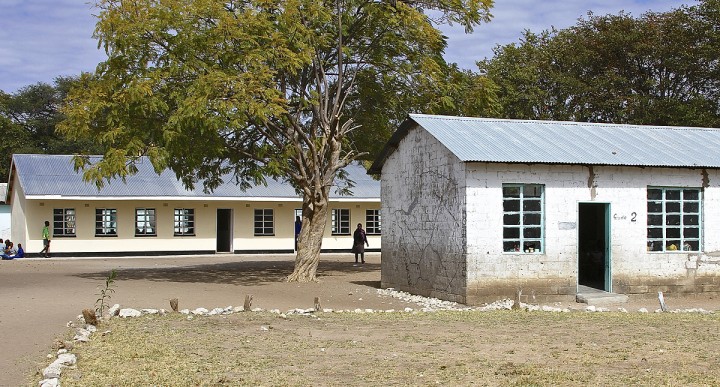
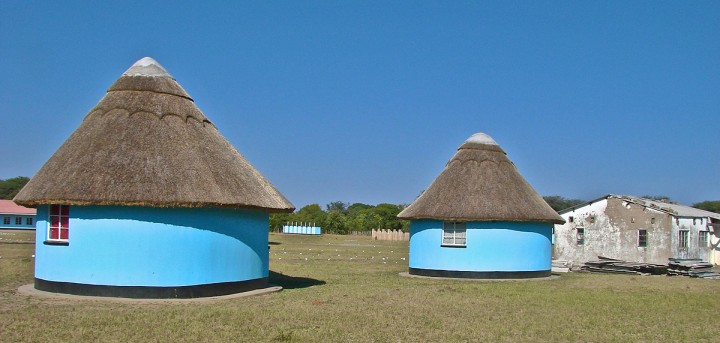
The enthusiasm shown by the children for attending school – many of them walking several miles each day – is testament to the value of this project.
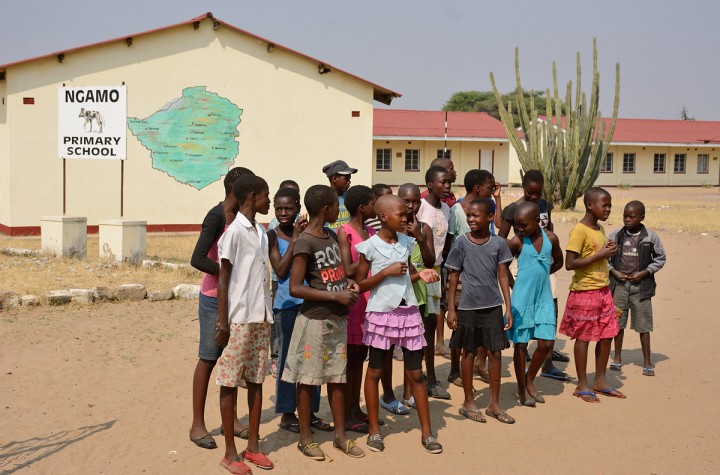
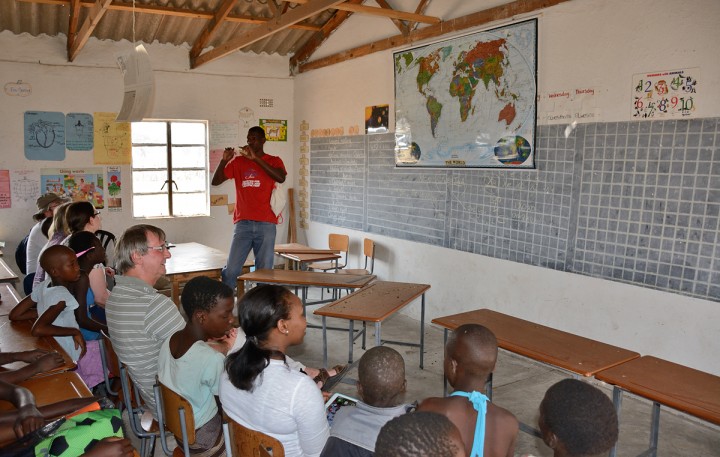
It doesn’t end there. Faced with the issue of where to educate the children after they finish primary school, work on a secondary school for Ngamo is nearing completion.
A Natural Barrier
Butch’s vision is to have a string of lodges along the park boundary with lodge staff drawn from the local communities. In return the villagers play their part in protecting the park’s wildlife by acting as a barrier against infiltration by poachers.
If this model can be replicated all around the park’s boundary it will be a huge step towards safeguarding the future of this iconic Zimbabwean park.
Mark ‘Butch’ Butcher
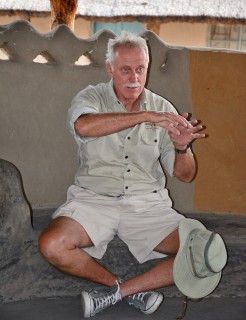
Butch’s wildlife career started in 1979, when he became a ranger for the Department of National Parks and Wildlife Management. He completed a BSc in Zoology and Botany at Rhodes University, before moving on to work for Zimbabwe’s Forestry Commission.
As Provincial Wildlife Officer, Butch was responsible for all the wildlife that roamed within 1.8-million acres of indigenous forest. Whilst undertaking this enormous task, he quickly discovered how essential the local people’s support was to the wellbeing of the estate.
Butch began to develop programs that would both engage the people and benefit the natural ecosystems. He finally left the Commission to develop these initiatives from the other side of the fence. Butch’s lifelong passion for Hwange – it’s elephants, wildlife and communities – formed the cornerstone for Imvelo Safari Lodges to grow into what it is today.
Visit Ngamo
All our clients staying at Bomani Tented Lodge and Camelthorn Lodge have the opportunity to visit Ngamo community and school during their stay.

